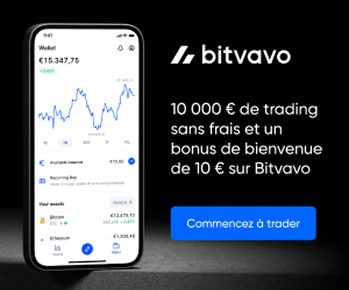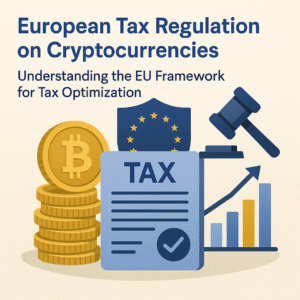BitShares: analysis, how it works and a guide to investing in BTS
Introduction & SEO teaser
BitShares (BTS) is emerging as a landmark blockchain dedicated to decentralised finance (DeFi), offering a fast, decentralised alternative to traditional trading systems. In this comprehensive analysis, find out how BitShares works, its real-world use cases, its future prospects, and what sets it apart from other cryptos. Whether you want to buy BitShares, understand its technology or assess its investment potential, this article will guide you step by step.
Key takeaways
Key facts:
- High short-term volatility linked to the dynamics of the crypto market
- Key factors: DeFi regulation, institutional adoption and technical innovation
- Long-term growth potential, driven by decentralised finance
- Unique positioning compared with Ethereum and other DeFi blockchains
How does BitShares work?
BitShares To understand better Bitshares fluctuations, check out our page on the course of bitshares (https://cointobuy.io/bitshares/) is based on a robust technical architecture designed to optimize the speed, scalability and security of financial exchanges in a decentralised environment. Its technological core is a custom-designed blockchain, distinct from Ethereum or Bitcoin, offering an integrated DEX (decentralised exchange) without the need for intermediaries.
Technology used
Consensus DPoS (Delegated Proof of Stake): BitShares uses a delegated consensus mechanism. BTS holders vote for ‘witnesses’ (validators), who are responsible for creating blocks. This system reduces energy consumption and speeds up transactions.
Proprietary blockchain: BitShares is not EVM-compatible, as it is not based on Ethereum. It uses Graphene technology, developed in-house, which is theoretically capable of processing more than 100,000 transactions per second.
Interoperability & synthetic tokens: Thanks to bitAssets, BitShares can create tokens representing other assets (bitUSD, bitEUR, etc.), offering a native form of stability without the need for third-party stablecoins.
Technical specifications
DEX integrated: Unlike many projects that add a DEX after the fact, BitShares’ DEX is native. Users can trade on it in a completely decentralised way.
Smartcoins / BitAssets: These tokens are created via collateralisation positions and guarantee a stable value by tracking an underlying asset.
On-chain governance: Technical and development decisions are taken by BTS holders via a voting system.
The BTS token is used to :
Pay DEX transaction fees
Participate in governance (voting by witnesses and committees)
Collateralise bitAssets
Platform to buy BitShares
Founders and Team
Founding team:
- Dan Larimer: American software engineer, creator of the DPoS concept and DEX pioneer. Visionary of financial services-oriented blockchain.
What Makes [Nom cryptomonnaie] Unique?
Specific features of BitShares: use cases, innovation and differentiation
BitShares offers a unique infrastructure in the world of decentralised finance, focusing on the efficiency of exchanges and the stability of digital assets. Its ecosystem combines several technical and functional elements that make it a solution in its own right, often underestimated in the face of giants such as Ethereum or Binance Smart Chain.
Innovative use cases
- Native decentralized exchange (DEX)
- bitAssets – native stablecoins
- Solutions for emerging markets
- Fast P2P payments and transfers
Unique value proposition
- Technical performance: thanks to Graphene, BitShares offers scalability far superior to many competing blockchains.
- User autonomy: any user can create their own token, access a synthetic asset market or vote to influence the rules of the protocol.
- Neutrality and decentralisation: unlike many DeFi blockchains that rely on centralised foundations, BitShares operates without a controlling entity.

Implicit comparison with other projects
- Vs Ethereum: BitShares is not EVM-compatible, but it benefits from a much faster and finance-oriented infrastructure from the outset, unlike Ethereum, which adapted to DeFi later via smart contracts.
- Vs Binance Smart Chain: BSC is fast but centralised around Binance. BitShares, although old, offers a truly decentralised alternative with community governance.
- Vs MakerDAO / DAI: bitAssets operate with similar logic but are natively integrated into the BitShares chain, without relying on an external smart contract.
BitShares Conclusion and future prospects
BitShares remains a historic benchmark in the world of decentralised finance-oriented cryptocurrencies. Thanks to its native DEX, stable tokens (bitAssets) and transparent governance, it embodies a purely decentralised vision, faithful to the founding principles of blockchain. Despite its lower profile compared with more recent projects, BitShares retains solid technical strengths and an active community.
Its future will depend on its ability to make itself more accessible to developers and to build bridges to other ecosystems. The rise of interoperable solutions and growing interest in DeFi could restore BitShares to a central position in the ecosystem.

FAQ – BitShares (BTS)
What is the BitShares (BTS) token used for?
The BTS token is used to pay transaction fees, vote in governance and create stable assets (bitAssets).
Is it a good investment?
BitShares has long-term potential thanks to its mature technology and integrated DEX, but remains a volatile asset.
How does it differ from Ethereum?
Unlike Ethereum, BitShares is not EVM-compatible, but offers native DEX, faster execution and built-in stablecoins.
Where can I store my BitShares token?
BTS can be stored via the official BitShares wallet, as well as on certain compatible wallets such as Ledger (via Bridge).
Is the project secure?
Yes, BitShares is based on a proven blockchain, a DPoS consensus, and transparent governance through community voting.
Where can I buy BitShares?
BTS is available on several platforms, including this reliable partner platform, with low fees and fast KYC.
Disclaimer :
Trading is risky and you may lose all or part of your capital. The information provided does not constitute financial advice and/or an investment recommendation
Top-Rated Platforms to Trade Crypto
Explore Our Financial Views on the Market
Crypto News & Insights
Digital Assets Forum 2026 returns to
The Digital Assets Forum (DAF), one of Europe’s most respected...
Blockchain and Cryptocurrency Conference (B2C’ 2025):
The Blockchain and Cryptocurrency Conference (B2C’ 2025) is scheduled for...
European Tax Regulation on Cryptocurrencies: Understanding
The regulation of the cryptocurrencies market in the European Union...













